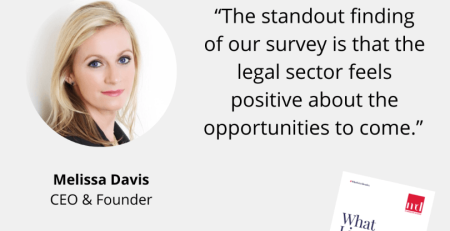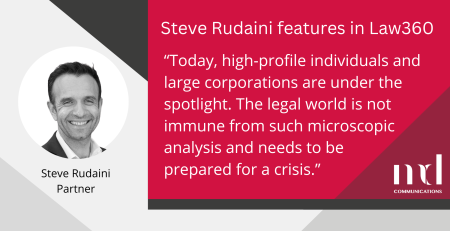With the news that a legal secretary has won a sexual harassment case against her ex-boss after a judge decided his behaviour was “not just banter”, we can see that times have changed. Partner Deborah Ross reflects on the social and professional landscape following the #MeToo movement.
Twenty years ago as a junior lawyer at a magic circle firm, stories abounded about partners and trainees caught in flagrante delicto. Even work documents weren’t immune to this sexual impropriety. More than once I remember receiving attachments from colleagues that promised a ‘power purchase agreement’ but delivered pornography.
This more permissive or, let’s be honest, sexist culture meant that most misdemeanours were received with little more than an eye roll. In the rare instances they went public, or were actually punished, the press had a field day.
Some of us are old enough to remember the unfortunate Claire Squires email, Ketchupgate, bankers and gherkins, to name a few. The appetite for such stories clearly always existed, but the culture at the time ensured that most remained hidden.
Culture clubbed
Back then, little thought was given to diversity, equality, or mental health. If you couldn’t suck it up and get on with it, you were shown the door with plenty of other hungry juniors waiting to fill your shoes.
Behaviour that was prevalent 20 years ago was generally directed at juniors at the beginning of their careers. They were too afraid to speak up, fearful that they would be branded trouble-makers or liars, but certain in the knowledge that a report would be career-limiting.
The social and professional landscape has changed following the #MeToo movement. Predatory behaviour that was once tolerated is no longer acceptable.
With the widely reported news that a legal secretary won a sexual harassment case against her ex-boss after he made her subject to an “offensive environment and arguably an intimidating one”, we can see that times have changed. As the papers report, the judge decided that the boss’ behaviour was “not just banter” and she was awarded an undisclosed sum.
The change in culture cuts across all sectors, but the problem snowballs for the legal sector when you have a maverick lawyer, often a super biller, known for unacceptable behaviour. While their successes might burnish a law firm’s standing, their failings will tarnish that reputation ten-fold and hit the press in no time.
New laws implemented through 2023’s Online Safety Act pose further questions and challenges — not least the various Online Harms that fall under its remit.
Online harms
Lawyers haven’t yet been prosecuted for Online Harms, but legal history was made recently as Nicholas Hawkes received a 66-week prison sentence for cyberflashing — the first such offence to receive punishment. It doesn’t take a massive leap of imagination to see how an offending lawyer might eventually come into the cross hairs of these new laws.
Other forms of online harm can come via allegations of hate crime, hate speech and online bullying. With emotive and polarising subjects such as the Israel/Gaza conflict, there have been numerous reputational crises emanating on social media. Law firms clearly must remain vigilant of an already divisive subject evolving into a criminal one.
The court of public opinion
As well as seeking redress in the courts, complainants often know the biggest damage will be done in the media and the court of public opinion.
Attempts by defendants to curtail this typically come in the form of SLAPPS (Strategic Lawsuits Against Public Participation). The key aim of a SLAPP is to prevent publication on matters of public importance, such as whistleblowing or investigative journalism. Claims of defamation, invasion of privacy, and breaches of confidence, are the causes of action most associated with SLAPPs.
Crisis communication
A client’s confidentiality must always be balanced with the public right to information. Navigating this reputational and legal minefield requires substantial experience.
Understanding the legal and the trial processes, and knowing exactly what makes a good story in the media is crucial in a crisis. Advisers need to help clients identify how to control this flow of information, both internally and externally.
This includes: advice on what can and cannot be legally divulged at various stages of a trial, what to tell employees, how to react to press briefings, how to deal with leaks of confidential information and, most importantly, when to speak to the media.
Being experts at briefing the media during the course of a trial or a crisis certainly helps shape the public narrative.
The bad behaviour of individuals should be punished by law — and increasingly, this is happening, but due process must be followed to protect the innocent and reduce collateral damage.
In a landscape where carefully built businesses and reputations run the risk of being cancelled, robust advice helps weather the storm.










